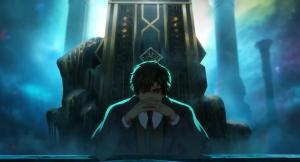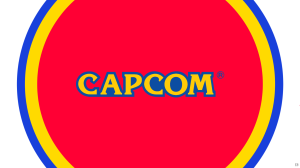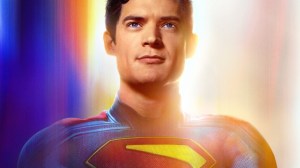One of the most exciting panels at Heroes Con this year in Charlotte was the one that featured two very prominent and well-regarded writers, Scott Snyder (Swamp Thing, Batman, American Vampire) and Bill Willingham (Fables, Fairest). A special guest joined the panel for a little discussion, cover artist Adam Hughes (Before Watchmen). The conversation was mainly rooted in Willingham and Snyder’s work with Vertigo Comics, an offshoot of DC, but other topics, including the origins of the men’s career in writing, were touched upon.Willingham started the panel off by talking about how Fairest came about as a result of a chance meeting with Adam Hughes at a convention. Through a series of events, Hughes was asked to do covers for Fables and from that, Fairest came about as a project that they collaborated on together due to Hughes interest in certain types of art. It was an interesting segue into the discussion from the panel, and Hughes commented that Vertigo has been a place that has thrived because of works like Fables and Fairest. Hughes said, “I was working on Justice League at the time Vertigo started, and a lot of us over in super hero land thought it was kind of a fad at first, and now it’s an amazing thing with a lot of history behind it so many years later.”Willingham chimed in, “When i was breaking into comics, there wasn’t really an independent movement. There was Marvel, DC, underground and that’s it. There weren’t a lot of options back then. I wanted to draw comics, but I thought back then that you were an artist or a writer, you didn’t try to be both. I broke into comics as an artist. It’s easier today, because an artist can show six pages and an editor can know if they have the “stuff” or not. Many writers have a hard time with showing work to an editor because their work is harder to “get” in just a few pages.” Willingham went on to say that part of the luck of him ending up as a writer was the fact that he wasn’t that great of an artist, in his opinion. “Art is something you have to do every single day. You have to create something every day, especially if you are on a schedule. Writing allows me a freedom and pace that works.”Snyder talked about his own journey into comics, “I had a strange path into comics. I had learned to be a comic book artist all through college, but I started concentrating on writing due to a crazy college schedule. I went to grad school for writing, and I wrote short stories and such. I was approached by two editors at a book reading, and I was excited that they liked my stuff. They asked me about writing for Marvel and doing some historical stuff with the Human Torch. I had a book deal, but I was miserable trying to please the publisher with what they wanted in the book I was writing. I hated it, and I was writing comic books and I started loving it. My wife was supportive, so I pitched American Vampire and it saved my life. I love literary fiction and short stories, and doing American Vampire brought joy to me. I was as creatively fulfilled with my writing now as I was writing fiction.”After that, Willingham quickly took the role of moderator and asked a follow-up to Snyder about why a vampire book. Willingham said that he would have bet money that there wouldnt have been life in a vampire book in this day and age, but he was impressed with it. Snyder responded, “I was aware that those vampire things were huge and they were sort of crazy exposed. When I was growing up, vampires were scary. They were scary monsters that are out to get you. Like zombies, they were people that you might have known that were now back from the dead and trying to hurt you. That’s scary. At that time it felt like vampires were used in this boring way, heartthrobs, romantic things, etc. I wanted them to be scary because they were close to home and it was new.” Many know that Stephen King has become a part of American Vampire legend, but it was clarified here that Stephen King became involved after it was sold to Vertigo. Snyder joked that maybe it would have been easier to sell earlier if King was involved earlier!Snyder went on to say what made American Vampire different from other vampire tales, saying that it focuses on the origin of new species vampires in the old west. The story follows them through history and focuses on the different species and their interactions. The author went on to say that a limited series of American Vampire is on the way that will focus on Dracula and his role in all of this.Hughes then chimed in when asked about why he was doing so much cover art. “No one offered me interiors,” he joked, “people sometimes think artists and writers have more power than we do. A cover artist, no matter what it is, we are not the final person making all the calls about what will go in there [the final issue]. It’s a process. People think that you can just get whatever you want with comics. I’ve been getting covers, and after awhile I stopped caring about interiors. It’s very tough to do. It’s like taking a hill in the Korean War. It’s easy to do it badly, so I’d rather stick to doing great, very detailed cover art.”The conversation once again turned to Fables, which has now reached well over 100 issues, and Snyder was curious as to how Willingham has been able to do this. Willingham said, “One thing that keeps Fables fresh is that we do think of it as a series that has seperate stories that come to a close. It’s mini-series and limited series that come to a close in the same locations with the same people; they just happen to be in the same title. We’re telling new stories that are short. No story is longer than it needs to be. We don’t need to have a major coproprate character be the same way he is now and in three years be the same. That doesn’t work for us. A new story always makes it feel fresh. The world of Fables can survive as many stories as you want. I see American Vampire as having legs, because it has seperate stoires that are engaging and involve multiple characters, so it’s not just the same titular hero in every issue.”Snyder appreciated the compliment, and when asked about his love of Vertigo he was very earnest, ” One of the things I love about working with Vertigo is that we love to push ideas we can do there, we can go as dark as we want. Part of the fun is that we have so much freedom to do our work there. I love doing all the books, but it’s fun with Vertigo is going from each different series to each different series and see it as a personal vision in each book, the singularity of it. You get a feel for each author’s personal vision and world in those books.Some very interesting and somewhat sobering advice came from both Willingham and Snyder about getting into comics as a writer, which they acknowledged is very difficult. ” Find a way to get into comics if you want to write. Take any job you can as a way in, because it’s just that hard to break in as a writer. Keep trying,” said Willingham. Snyder added, “It’s really hard when fans approach you with their work and have ideas for really iconic figures, because companies have no idea if you can actually write these stories or not. The best thing is to get your own stuff out there and have a team-up with an artist, because they are out there. You have to have cred somewhere else. Show them that you have something. Make your own stuff that is finished and published. Once you have that, that’s your resume. If they noticed me doing short stories, then hopefully they can notice you as well. Get your own stuff out there and then you may be able to climb further.”Humorously chiming in, Willingham added, “Another thing with that too is that you can write on a deadline and consistently as well. That establishes you as well, the ability to finish something. I once was offered Superman and I froze. I didn’t have a Superman story in me and I was intimidated. It was going to be great, haha, it never happened. Publishers do have a legitimate need to see if you can actually get things turned in on time.” The panel came to a close with lots of fan questions about the creative process and with an eager audience willing to stay well past the end of the official panel to hear what these talented men had to say.
Writing Fantasy With Scott Snyder, Bill Willingham and Special Guest Adam Hughes!
One of the most exciting panels at Heroes Con this year in Charlotte was the one that featured two […]










